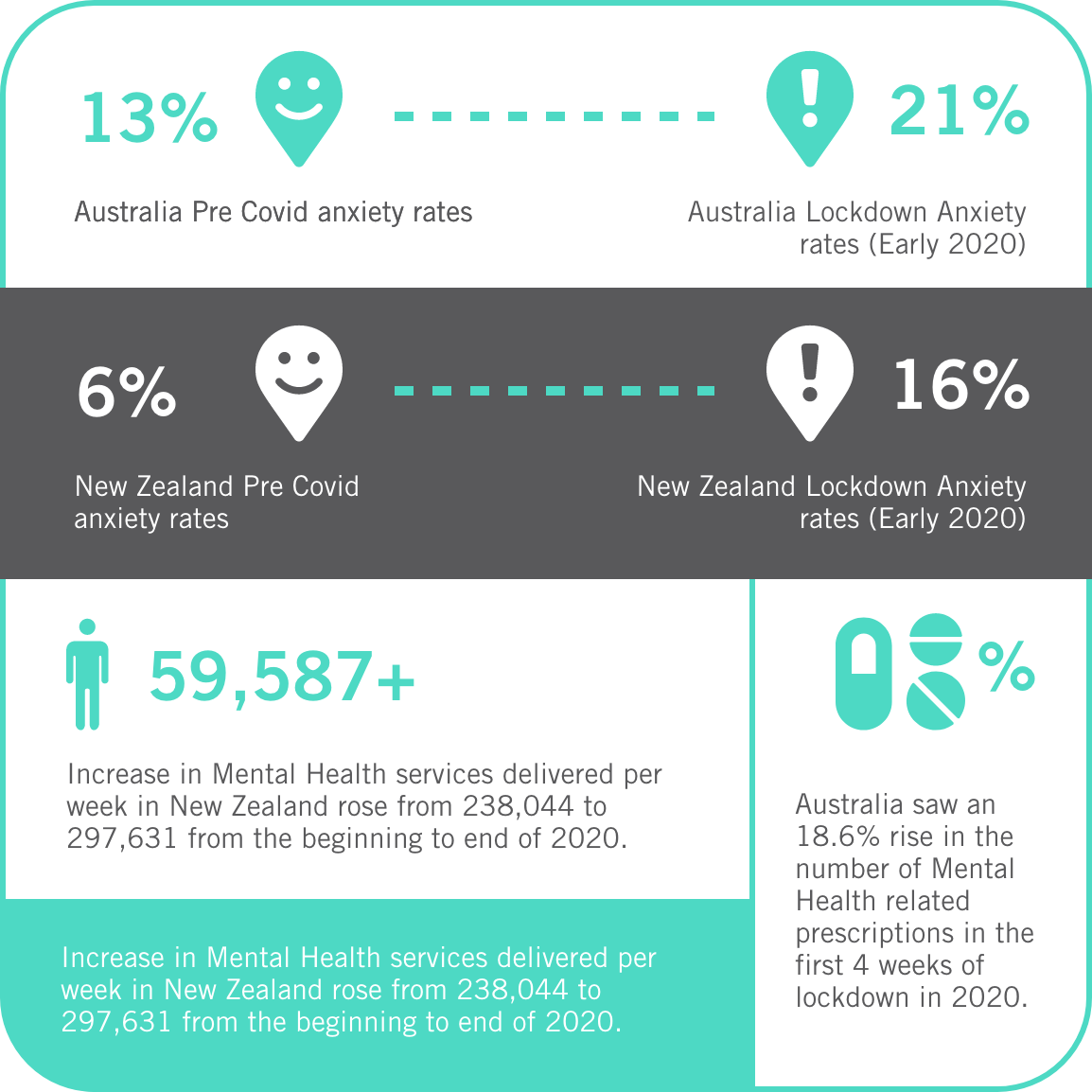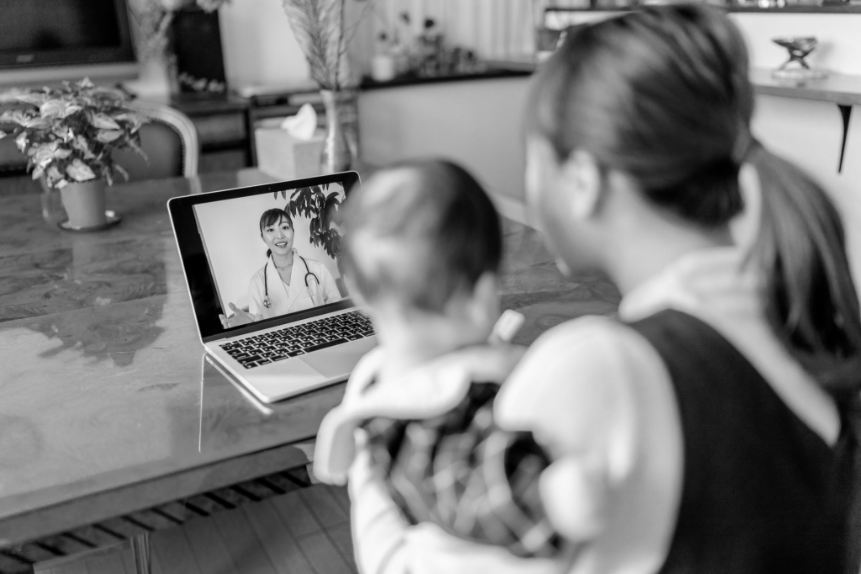Australia’s response to Covid 19 has been considered successful by many in terms of keeping some of the lowest infection rates of any country. Despite Australia’s best efforts, the impacts of Covid-19 have taken their toll on the country and Australia has been quick to respond to the impacts on mental health due to what the lockdowns and closed borders has had on the population. The need for a response to the Covid-19 pandemic was addressed in a number of ways by governments around the world and we will explore the strategies put in place by Australia through this article.
In both Australia and New Zealand concern over the mental health impact of the lockdown approach has risen over the course of the pandemic, and it is important for us to understand exactly what that impact has been and how as a country we can move forward.


There are numerous factors involved with increased pressure during lockdowns beyond the isolative aspect itself. Many people found themselves working from home for the first time, having to adapt to a new way of working whilst maintaining productivity. In addition, with everyone at home during lockdown, that also meant combining the tasks associated with work alongside childcare and home schooling was a first for many parents across the country.
Other issues arose from the closure of borders, with families and loved ones separated for an unknown period of time. The mental health impact of isolation and the social anxiety from life returning to “normal” is still yet to be determined.
From a social perspective friends and families were much more isolated. Children also had to deal with life away from friends, losing the interaction with others in the classroom and during play has been particularly difficult, and while online chat systems allowed children to keep communicating with classmates has been beneficial, although it never really replaced the kind of interactions that daily life provides during crucial development stages for the social skills we need throughout our lives. The rise in user engagement with video conferencing platforms such as Zoom and MS Teams has also had a positive approach in keeping people connected during these trying times.
With all these pressures, Covid-19 and lockdown created the perfect storm for anxiety and other mental health issues to rise. In New Zealand, researchers from the University of Otago looked at the mental health impact of lockdown, and in a survey carried out during lockdown between the 15th and 18th of April 2020, found that around a third of respondents had experienced mental distress on at least one occasion during the lockdown.
That survey took place on days 19 to 22 of the lockdown, which ultimately lasted for 33 days, and perhaps gives an indication of the mental health problems building during the process. It is a similar story in Australia too, with a 20% increase in suicides from 2019 – 2020, and a further increase during 2021.
There has been an increased demand for mental health services as observed by the Australian Institute of Health and Welfare. Telehealth digital solutions such as the Support Service by Beyond Blue provided access to psychologists and social workers without needing face to face contact. New Zealand shows a similar increase in remote support for mental health across all demographics too.

The threat of Covid-19 remains a cause of concern for most people today, but during the lockdown it was all-pervasive. Understandably then, people were reluctant to see a psychologist, and the ability to gain access to social workers was limited even post lockdown, the danger that meeting those outside your household represented had been a continual warning for close to 6 months.
This has unfortunately created a system that is inflicting greater pressure on individuals, while at the same time discouraging them from seeking help from the consequences. The rise for online tools to provide support for people suffering with mental health issues in Australia makes sense in that scenario, and has seen a rise in engagement with people seeking assistance.
Governments in Australia and New Zealand have moved to increase spending on mental health support, with Australia delivering a record $115.5 billion this year and $467 billion over the forward estimates, representing an increase of around 10% over previous budgets and specifically designed to cope with the additional demands of the lockdown. New Zealand have also boosted funding for mental health support, with individual schemes for regions including an additional $5.6 million for Auckland including an allocation for the Mental Health Foundation campaign for preventative action against mental health issues.

While the pandemic has not gone away, the world is in a better place than it was, and this is reflected in the approach by the Australian and New Zealand governments. With borders tentatively reopening for limited groups, life is returning to a sense of normality. However, the mental health problems that have built up during lockdown remain and dealing with those is crucial.
The difference Social Workers and Psychologists make to someone’s life is imperative as we seek to overcome the mental health crisis that has grown because of lockdowns and the pandemic. Demand for this skill set greater than ever in both New Zealand and Australia.
Limelight People
Limelight People are a leading recruitment consultancy in the health industry throughout Australia and New Zealand. We are always keen to speak to dedicated professionals in the field and connect you with the very best opportunities.
With a client portfolio including Aboriginal Corporations, Not for profits and Public Health, we are well positioned to support your career aspirations.
For further information please make contact today via our website www.limelightpeople.com.au or by email info@limelightpeople.com.au







